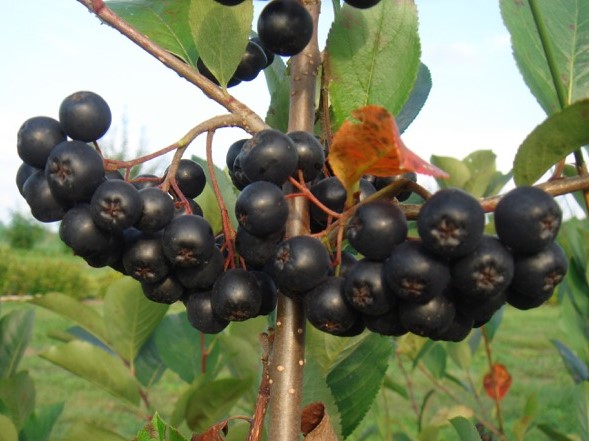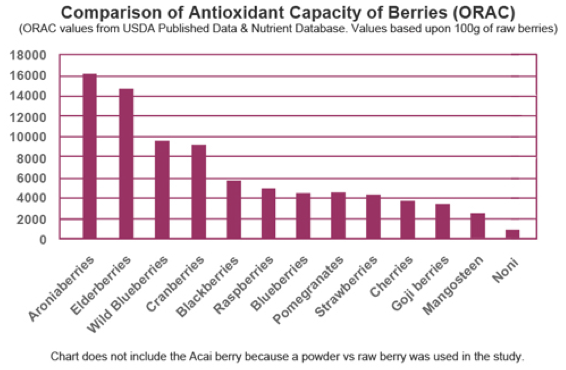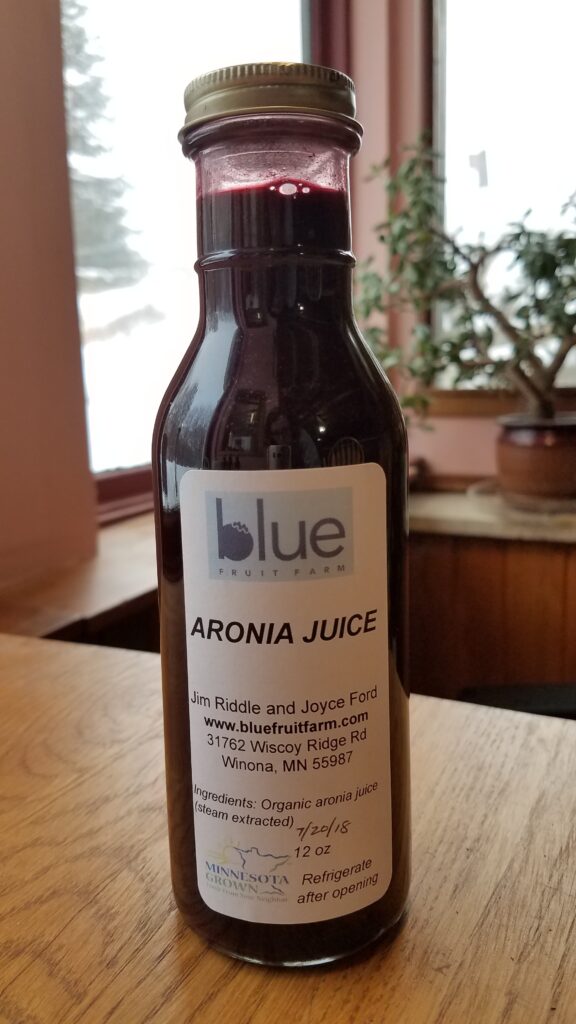
About Aronia
Also commonly referred to as black chokeberry or apple berry, aronia (Aronia melanocarpa) hails from the Rosaceae family of plants, a family that includes many important edible and ornamental crops such as apples, plums, roses, and almonds. Resistant to drought, insects, and disease, aronia is a hearty plant with cold tolerance of -40° F, or USDA Zone 3. The deciduous shrubs produce dark purple, nearly black berries with high anthocyanin content – a factor which contributes to the extraordinarily high antioxidant content in aronia berries. At Blue Fruit Farm, we grow the “Viking” variety, purchased as rootstock from Knight Hollow Nursery in Wisconsin. Aronia plants are self-fertile, meaning only one plant is needed to produce fruit. We harvest aronia berries in August. While they are astringent when eaten fresh, they mellow out when frozen and are excellent in baked goods and smoothies.
Health Benefits
Aronia is a superfruit. It is one of the top berries on the Oxygen Radical Absorbance Capacity (ORAC) table, with nearly 4 times the antioxidants of blueberries. Aronia berries also have more antioxidants than acai and pomegranate. They are exceptionally high in anthocyanin content for urinary tract health, beating cranberries by at least 5 times. Its high tannin content is associated with cancer protection. It is a great source of anti-cancer flavonoids, as well as promoting cardiac health, and is high in vitamin C. Aronia berries also have more anthocyanins than tart cherries and more resveratrol than red wine.


Using Aronia
In addition to their multitude of health benefits, aronia berries are extremely versatile. Aronia berries taste delicious in yogurt, smoothies, and oatmeal. Quite astringent when eaten fresh, aronia is often processed into jams, jellies, and juices. Berries can also be used in breads and baked goods instead of other dried fruits, and the tart flavor pairs wonderfully as a sauce for many types of meat. The color and tannins in aronia make it a good amendment to grape or elderberry wines and dried skins of berries make for a delicious tea rich in antioxidants. Beyond its culinary potential, aronia can also be utilized as a natural dyeing agent, turning fibers into an extraordinary shade of deep purple. The high antioxidant content makes aronia a valuable addition to soaps and lotions and can also be processed into tinctures.
We sell fresh aronia berries in season in 5 lb boxes and frozen aronia berries in 5 lb bags while available. Jams we make that include aronia berries are: Aronia Berry, Aronia Blue, and Elderonia Jelly. We also cold press juice for 12 oz bottles of Aronia Juice, Elderonia Juice (2/3 elderberries and 1/3 aronia juice), Aronia Pear Juice, and Blue Fruit Juice (3 parts blueberries, 1 part aronia, 1 part pear).
